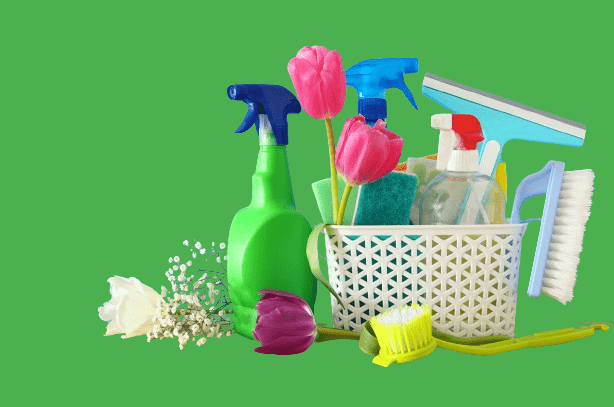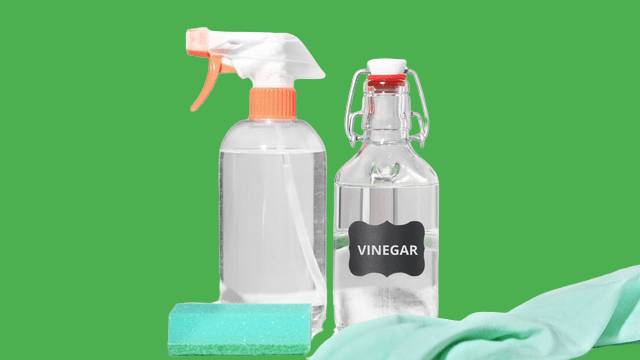Can you clean with homemade vinegar?
Does white vinegar provide hygiene? White vinegar, a natural source of acid, is used both in the kitchen and in cleaning. White vinegar, which has many health benefits, is preferred as a natural source of hygiene. It is also important to use white vinegar, which has a wide range of uses, in a controlled manner. Vinegar is a natural, cheap and effective cleaner for cleaning the home. Thanks to its acidic properties, vinegar kills bacteria, germs, dissolves grease, dirt and eliminates unpleasant odors.
How to clean the house with vinegar? The use of non-harmful vinegar instead of chemical cleaning products is the most important choice of housewives. You can clean surfaces such as furniture by adding 3-4 tablespoons of vinegar to a spray bottle with water. Which vinegar to use for cleaning the house? When cleaning with white vinegar, you disinfect, deodorize, descale and clean naturally. In short, it does everything that other cleaning materials can do in a more environmentally friendly way.
Can you wipe the house with apple cider vinegar? Apple cider vinegar is a completely natural, wonderful disinfectant for cleaning your home and many items. Apple cider vinegar and white vinegar, which you can use with peace of mind instead of toxic bleach or cleaners with dozens of chemicals, can kill germs thanks to the acid in it.

Can You Clean At Home With Vinegar? Yes, vinegar is a versatile and effective household cleaner, and many people use it for various cleaning purposes. It’s a natural, non-toxic option that can be used for cleaning different surfaces in your home. Here are some ways you can use homemade vinegar-based solutions for cleaning:
- All-Purpose Cleaner:
- Mix equal parts of distilled white vinegar and water in a spray bottle.
- Use this solution to clean countertops, glass surfaces, bathroom fixtures, and other non-porous surfaces.
- Window Cleaner:
- Mix 1 part water and 1 part white vinegar in a spray bottle.
- Spray the solution on windows and glass surfaces, then wipe with a clean cloth or newspaper for a streak-free shine.
- Floor Cleaner:
- Add 1 cup of white vinegar to a bucket of warm water.
- Use this solution to mop hard floors. It can help remove dirt and leave surfaces clean.
- Toilet Cleaner:
- Pour 1 cup of white vinegar into the toilet bowl.
- Let it sit for a few minutes, then scrub with a toilet brush for a natural toilet cleaner.
- Microwave Cleaner:
- Mix equal parts of white vinegar and water in a microwave-safe bowl.
- Microwave the bowl for a few minutes until it steams. This helps loosen any food splatters.
- Wipe down the interior with a cloth.
- Deodorize and Disinfect:
- Place an open bowl of white vinegar in a room to help neutralize odors.
- White vinegar has antimicrobial properties, so it can help disinfect surfaces.
- Remove Hard Water Stains:
- Soak a cloth or paper towel in white vinegar.
- Place the cloth on hard water stains around faucets or on glass shower doors. Let it sit for a while before wiping clean.
- Fabric Softener:
- Add 1/2 to 1 cup of white vinegar to the fabric softener compartment of your washing machine.
- This can help soften clothes and reduce static cling.
When using vinegar for cleaning, it’s important to note that its strong odor dissipates as it dries, leaving a neutral scent. Additionally, while vinegar is safe for many surfaces, it may not be suitable for all, especially natural stone surfaces like marble or granite. Always test a small, inconspicuous area first and avoid using vinegar on surfaces that can be damaged by acidic substances.
Is it good to clean your house with vinegar?
There are many auxiliary cleaning products for household cleaning. However, some waters and mixtures that are not the main ingredient in home cleaning can be used. Vinegar is one of them. What are the benefits of wiping the house with vinegar water? How to clean with vinegar water? Is cleaning with vinegar water harmful?
How to Clean with Vinegar Water? Vinegar water can be used alone or with various cleaning agents. It is enough to put white vinegar in a container to remove the stains on the glasses. After a certain period of time, it will be seen that the stains will come out spontaneously in the glasses kept in hot water. Stains that do not come out with white vinegar can also be removed before washing.

It will be enough to apply white vinegar on the stains before they are thrown into the washing machine. There is no need for any auxiliary cleaning product to use white vinegar on glass and tile surfaces. Vinegar can be used alone, but it is recommended to use it together with bleach on very dirty surfaces.
Cleaning your house with vinegar is a safe and effective option for many surfaces. Vinegar, especially white distilled vinegar, is a versatile and natural cleaner that has several benefits:
- Non-Toxic: Vinegar is a natural substance, and when used for cleaning, it doesn’t introduce harmful chemicals into your home. This makes it a safer option, especially for households with children and pets.
- Antibacterial Properties: Vinegar has mild antibacterial properties that can help kill some common household germs and bacteria. While it may not be as potent as commercial disinfectants, it can still contribute to maintaining a clean and sanitary environment.
- Deodorizing: Vinegar is effective at neutralizing odors. It can help eliminate unpleasant smells in various areas of your home, such as the kitchen, bathroom, or even in the air.
- Versatility: Vinegar can be used on a variety of surfaces, including glass, countertops, floors, and bathroom fixtures. It can also be combined with other natural ingredients for enhanced cleaning power.
- Eco-Friendly: Using vinegar for cleaning is environmentally friendly, as it doesn’t contribute to indoor air pollution or leave harmful residues behind.
While vinegar is a great cleaner, there are some considerations to keep in mind:
- Odor: The smell of vinegar can be strong initially, but it dissipates as it dries, leaving a neutral scent. You can also add a few drops of essential oils like lavender or lemon to help improve the fragrance.
- Avoid on Certain Surfaces: Vinegar is acidic, so it may not be suitable for use on certain surfaces like natural stone (marble, granite), hardwood floors, or electronic screens. Always test in an inconspicuous area before using on a new surface.
- Mixing with Water: For most cleaning applications, it’s advisable to dilute vinegar with water, especially when cleaning surfaces that may be sensitive to its acidity.
Overall, vinegar can be an excellent addition to your cleaning routine, offering an affordable, natural, and effective alternative to many commercial cleaning products.





